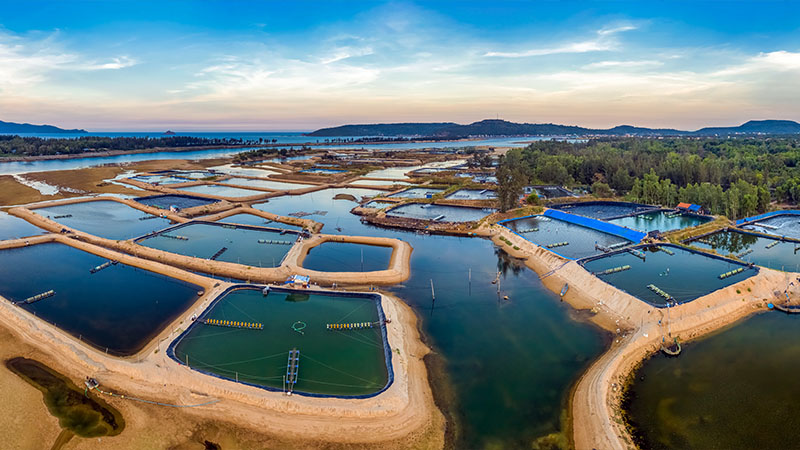Exclusive content

In Vietnam’s Ca Mau province, the Aqua Xanh project is actively working to combat water pollution and advance sustainable practices in the shrimp farming industry. Spearheaded by the Cargill Group and the Asia Society for Social Improvement and Sustainable Transformation (ASSIST), this initiative aims to pave the way for environmentally friendly shrimp farming across the Mekong Delta region.
Pilot Implementation in Ca Mau
The Aqua Xanh project, launched from May 2024 to July 2026, kicked off with a pilot implementation in Ca Mau. The project focuses on capacity building for shrimp farmers through training and technical support aligned with ASC (Aquaculture Stewardship Council) standards. Can Tho University plays a critical role as the main technical partner, overseeing the project’s implementation.
Key components of the Aqua Xanh project include training farmers on sustainable practices and establishing model farms to showcase recycling, waste reduction, and plastic waste monitoring techniques. These efforts are crucial amidst the challenges posed by climate change, including drought, saltwater intrusion, and unpredictable weather patterns affecting the Mekong Delta.
Impact on Shrimp Farming Cooperatives
The Tan Hung high-yield shrimp farming cooperative, which has seen significant growth since its inception in 2016, is set to benefit from the Aqua Xanh project. With over 300 members, the cooperative faces challenges in environmental management and quality improvement. The project aims to enhance environmental awareness and foster sustainable practices among its members.
Can Tho University’s involvement in supervising the project underscores its commitment to mitigating water pollution and promoting sustainable shrimp farming practices. By collaborating with Cargill, ASSIST, and local communities, the project seeks to establish a scalable model for sustainable shrimp farming in the Mekong Delta, with an emphasis on diversification and efficiency.
Towards a Sustainable Future
Through targeted training, certification support, and community outreach, the Aqua Xanh project aims to achieve ASC certification for a shrimp farming cooperative and reduce wastewater and emissions from pilot farms by specified percentages by 2025. The project’s success is pivotal in shaping a more sustainable future for Vietnam’s shrimp farming communities amidst evolving environmental challenges.